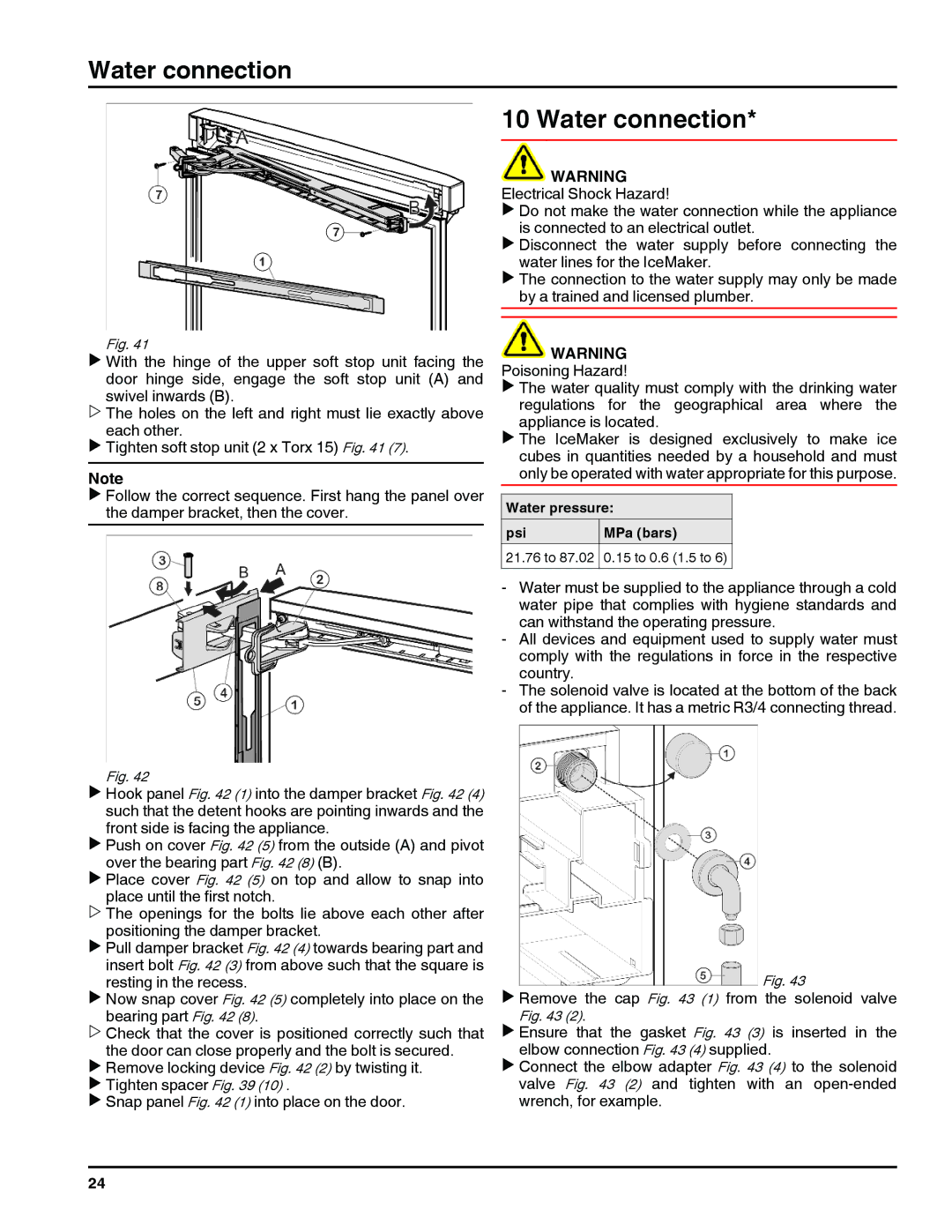
Water connection
Fig. 41
u With the hinge of the upper soft stop unit facing the door hinge side, engage the soft stop unit (A) and swivel inwards (B).
w The holes on the left and right must lie exactly above each other.
u Tighten soft stop unit (2 x Torx 15) Fig. 41 (7).
Note
u Follow the correct sequence. First hang the panel over the damper bracket, then the cover.
Fig. 42
u Hook panel Fig. 42 (1) into the damper bracket Fig. 42 (4) such that the detent hooks are pointing inwards and the front side is facing the appliance.
u Push on cover Fig. 42 (5) from the outside (A) and pivot over the bearing part Fig. 42 (8) (B).
u Place cover Fig. 42 (5) on top and allow to snap into place until the first notch.
w The openings for the bolts lie above each other after positioning the damper bracket.
u Pull damper bracket Fig. 42 (4) towards bearing part and insert bolt Fig. 42 (3) from above such that the square is resting in the recess.
u Now snap cover Fig. 42 (5) completely into place on the bearing part Fig. 42 (8).
w Check that the cover is positioned correctly such that the door can close properly and the bolt is secured.
u Remove locking device Fig. 42 (2) by twisting it. u Tighten spacer Fig. 39 (10) .
u Snap panel Fig. 42 (1) into place on the door.
10 Water connection*
WARNING
Electrical Shock Hazard!
u Do not make the water connection while the appliance is connected to an electrical outlet.
u Disconnect the water supply before connecting the water lines for the IceMaker.
u The connection to the water supply may only be made by a trained and licensed plumber.
WARNING
Poisoning Hazard!
u The water quality must comply with the drinking water regulations for the geographical area where the appliance is located.
u The IceMaker is designed exclusively to make ice cubes in quantities needed by a household and must only be operated with water appropriate for this purpose.
Water pressure:
psi | MPa (bars) |
21.76to 87.02 0.15 to 0.6 (1.5 to 6)
-Water must be supplied to the appliance through a cold water pipe that complies with hygiene standards and can withstand the operating pressure.
-All devices and equipment used to supply water must comply with the regulations in force in the respective country.
-The solenoid valve is located at the bottom of the back of the appliance. It has a metric R3/4 connecting thread.
Fig. 43
u Remove the cap Fig. 43 (1) from the solenoid valve Fig. 43 (2).
u Ensure that the gasket Fig. 43 (3) is inserted in the elbow connection Fig. 43 (4) supplied.
u Connect the elbow adapter Fig. 43 (4) to the solenoid valve Fig. 43 (2) and tighten with an
24
